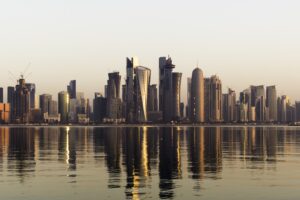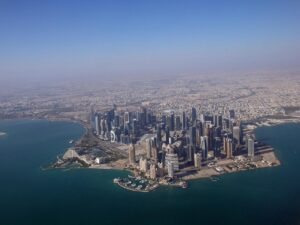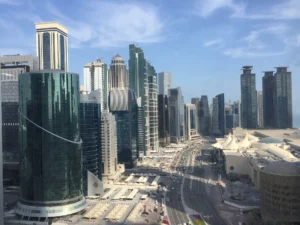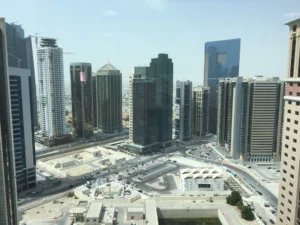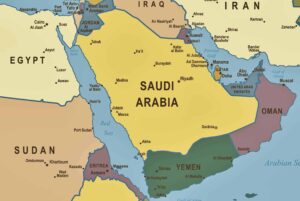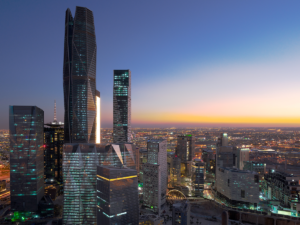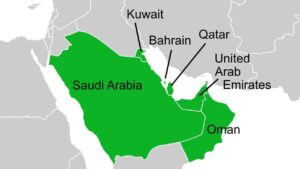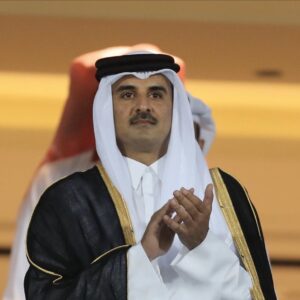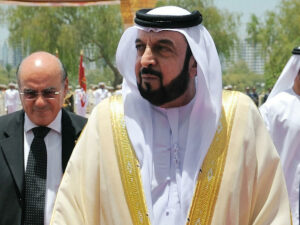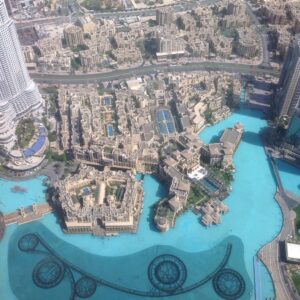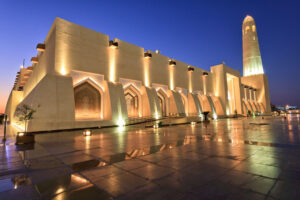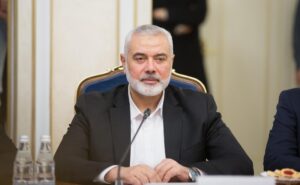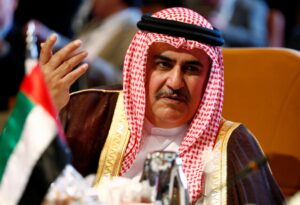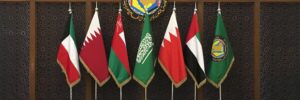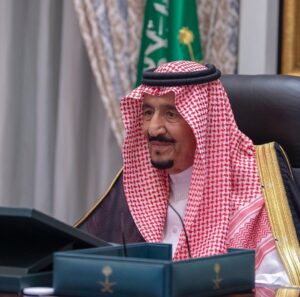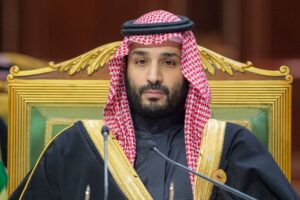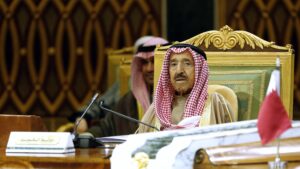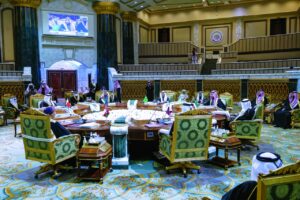by Glauco D’Agostino
This article was first published in “Geopolitica. Revistă de Geografie Politică, Geopolitică şi Geostrategie“, nr. 1 (102 / 2024) Translații geopolitice (II), Editura “Top Form”, Asociaţia de Geopolitica Ion Conea, Bucureşti, 2024.
Abstract
Qatar is a borderland and a bridge between multifaceted cultures within Islam itself. Independence protection, sectarianism overcoming, diplomatic mediation and defence of Palestinian claims are Dōḥa’s geopolitical fulcrum. Problems within the Gulf Cooperation Council concern what it considers Qatar’s cultural and economic challenge to the prevailing power of the Saudis. Over the last thirty years, the small state has gained awareness of being able to achieve a higher balance in its relationship with Saudi Arabia and Iran. With the rise of the Arab Revolts, Qatar’s attitude became more politically marked. Qatar and Saudi Arabia share the institutional structure (authoritarian monarchies), religion (Wahhābi Islam) and legal system (Sharī’a as the source of law). Yet, Dōḥa chose to support the Arab Uprisings and the Muslim Brotherhood, while Riyāḍ acted as a barrier to any political Islam infiltration. Under a GCC embargo since 2017, the small Emirate, called upon in an emergency to undertake an internal effort of technological innovation and efficiency, also played the cards of its international credibility: financial power and diplomacy.
But Qatari soft power is not limited to the management of its immense energy assets, but rather broadening its perspective to a role of cultural and communicative guidance towards the entire Sunni Arab world and promoting social associations. When Al Jazeera Media Network was born, the Wahhābi Emirate equipped itself with a plural communication tool that challenged the prototypes of Arab and Middle Eastern societies still in transformation, without fearing undermining the political-institutional order of the country itself. As for the Middle East, Dōḥa has always been close to the Palestinian people both on the issues of Gaza and the status of Jerusalem. However, it has always maintained an open channel with Tel Aviv, favouring dialogue over clear opposition in principle. Still, the peace processes towards setting a stable political framework in the region are linked to Qatar’s ability to encourage communication between the contenders.
Keywords: Qatar, Wahhābi Islam, political Islam, diplomatic mediation, financial power, Gulf Cooperation Council, Saudi Arabia, Iran, Muslim Brotherhood, Al Jazeera, Gaza, Israel.
***
Introduction
There is no doubt that Qatar has played and still plays a mediation role on a diplomatic level in international action and peace-making in the context of inter-Islamic dialogue. It has been its political nature since its emancipation from British colonialism, made up of pragmatism and a religious vision aimed at collaboration, despite a thousand contradictions. Yet, Dōḥa fits in as a full-fledged protagonist in the Middle Eastern panorama and beyond. Thus, the super-titled Cairo, Riyāḍ, Tehrān, Ankara, Tel Aviv and Damascus must take its positions into account. At the same time, even global geopolitical giants often have to resort to its mediation to resolve otherwise inextricable conflicts. Today, in Israel-Ḥamās case, yesterday the United States-Tālibān and Yemen-Ḥūthis, but also inter-confessional hostilities such as in Lebanon in 2008 or those in Palestine between Ḥamās and the Islamic Jihād Movement. What is the background to this exploit of the Emirate in just over thirty years? We try to take stock, examining opportunities and difficulties, rivalries and alliances, external causes and internal structures.
Qatar’s geo-anthropic features do not favour traditional economic activities, such as agriculture and industry, considering the dominant desert territory and the resulting climate. The narrow peninsula it stands on also limits the autonomy of land commercial traffic, which depends on access from the border with Saudi Arabia alone. Its territorial location places it in direct contact with two Middle Eastern giants, Saudi Arabia and Iran, dominating the Gulf. The small country has just over 300 thousand resident citizens and approximately 2.5 million immigrants from South Asian countries, thus welcoming just over one million Arabs and 1.8 million Muslims. All these particular assumptions would outline a condition of forced subordination to its territorial environment of reference towards which it exposes its weaknesses. And yet, Dōḥa has demonstrated an awareness of its geopolitical strengths from a defined moment in its short history, using its economic, diplomatic and relational resources with wisdom and prudence and playing them in a complex geopolitical game it completely seemed excluded from.
Although it is the world’s fifth largest natural gas producer, Qatar is the third country with the largest natural gas reserves after Russia and Iran, representing 13.1% of the global share.[1] With its almost $82,000 nominal GDP per capita, current prices,[2] today it is one of the most prosperous countries in the world with a Human Development Index (HDI) rated “Very High”[3] and the fourth in the world for GDP per capita assessed according to Purchasing Power Parity in International dollars, with a value of over $114 thousand.[4] The almost 50% increase in its GNI per capita between 1990 and 2021 is evidence of this. All said have also fuelled its ambitions for financial autonomy and geopolitical independence to its cumbersome neighbours. After the sanctions against Russia following the war events in Ukraine, Dōḥa had the opportunity to increase its exports to Western countries, benefiting from significant revenues deriving from the sale of gas in which Saudi Arabia and the other Gulf Emirates did not sufficiently invest.
But Qatari soft power is not limited to the management of its immense energy assets, but rather broadening its perspective to a role of cultural and communicative guidance towards the entire Sunni Arab world and promoting social associations that mobilise public opinions towards the issues of exclusion and poverty in developing countries.
Colonial legacy and role in the Arabian Peninsula
With these premises, the attitude of concern of Saudi Arabia and its allies in the Arabian Peninsula regarding the autonomy of Dōḥa’s behaviour to the directives Riyāḍ, as the dominant force in the area, requests to the governments of the bordering countries is consequential. Much of the problems that have occurred in the region and extended to the Middle East and North African countries regard the intolerance of some partners of the Gulf Cooperation Council towards what they considered a cultural and economic challenge to the prevailing power of the Saudis, a sort of lese-majesty, especially when they deemed Dōḥa’s foreign policy stances dangerous for the very survival of the existing political structures.
In truth, since the imposition of the British protectorate in 1916 and after the oil concession to the Anglo-Persian Oil Company, Qatar had exercised no power in foreign or defence affairs. Also, its currency remained the Indian rupee and, since 1959, the Gulf rupee, both issued by the Reserve Bank of India. But even after gaining independence in 1971, Dōḥa’s ties with London remained strong under a Treaty of Friendship. When the Gulf Cooperation Council was born in 1981, including all the monarchies of the Arabian Peninsula, Qatar was effectively placed under the leadership of the largest of these entities, by far Saudi Arabia.
The protagonist of the birth and evolution of the State was and still is the ath-Thānī Dynasty, originating from the “upland” (Najd in Arabic) central region of Saudi Arabia and creator in 1878 of the first modern form of the Qatari state entity recognised by the two dominant potentates at the time, the Ottoman Sultanate and the British Empire. Its continuous rule for almost 150 years, the institutional form of a consultative monarchy through the Shura Council since 1972, and the ability to reject any external interference on the institutional role of the ruling power have consolidated its political solidity and skill to look to the future.
Thus, at the end of the 80s of the last century and more than a century after its birth, a new elite led by the then Crown Prince Shaykh Ḥamad bin Khalīfa ath-Thānī understood the potential for innovation of the small country starting from a more careful and efficient use of energy resources. The appointment in 1992 of ‘Abdullāh bin Ḥamad al-Attiyah as Minister of Industry and Energy and the following year as President of OPEC opens a new season of Dōḥa’s protagonism on the international scene, with the awareness of being able to achieve a higher balance in its relationship with Saudi Arabia and Iran.[5] It meant, above all, a distancing from the Saudi stances, made more accommodating towards Washington’s policies after the war against Baġdād in 1991 and even more vigorous and assertive with the new Administration of the White House since 1993. Whereas fearing greater Saudi hegemony in the area and mindful of the fragility of small states as in the Kuwait case, Qatar concluded military defence agreements first with the United States in 1992 and two years later with France.
After the new leadership installation following the 27 June 1995 coup d’état by Ḥamad bin Khalīfa ath-Thānī against the reigning father Amīr Khalīfa bin Ḥamad, foreign policy takes over in state affairs and, with it, a new more decisive direction. Above all, distinctions towards Riyāḍ and its controlled GCC were increasing.[6]
The Saudi reaction began precisely following the positions taken by the new management, and it materialised both by initiatives of internal interference in the institutional framework and pressure and veto towards regional business programs. The first case included support, with Egypt and UAE participation, for the attempted coups in Dōḥa in 1996 and 2002. In the second case, there was various Saudi opposition to projects involving Qatar: for example, the Dolphin Gas Project to produce, process, and transport natural gas from Qatar’s North Field to the UAE and Oman, conceived in 1999 and anyway carried out in its various components before 2010 by an Abu Dhabi-based company with French-American participation;[7] the Qatar-Bahrain-Kuwait pipeline through Saudi waters, envisaged by a 2001 protocol that never materialised;[8] the UAE-Qatar causeway, planned in 2005 and immediately stalled, designed to overcome the traffic and time problems needed to travel the 125 km of Saudi Arabian territory that separate the two countries.[9]
Openness to the U.S. and reputation in mediation
In this situation of continuous skirmishes, it is not surprising that Dōḥa sought and obtained Washington’s trust in its operational capabilities while maintaining a faculty of political judgment, as in the case of the Second Palestinian Intifāḍa of 2000. And yet, the post-9/11 White House was engaged in the invasions of Afghanistan and Iraq, which required a war effort and greater involvement of the available countries in the Gulf area. When, in April 2003, al-Udeid air base in Qatar welcomed the U.S. Combat Air Operations Center for the Middle East, previously located at Prince Sultan Air Base, Saudi Arabia, it became intelligible a territorial change resulting from a diplomatic preparation lasting several years. The Qatari base, built in 1996 and kept secret until 2002, had already been made available for U.S. operations in Afghanistan in 2001, and the following year, an agreement between the parties formalised the American presence in the base.
However, Amīr Ḥamad bin Khalīfa’s foreign policy before the Arab Spring was marked by substantial neutrality between the contenders in the various Middle Eastern crises, an attitude which allowed him to affirm his reputation as a mediator.
The Ḥūthi insurrection in Yemen, which started in 2004, closed its fourth phase in 2007, thanks to the mediation of Qatar when it agreed to harbour the rebels in exchange for their disarmament. The Ḥūthis are Zaydi Shiites deemed to be heir to the Mutawakkilite Kingdom of Yemen, whose fall in 1962 had resulted in the end of the local Shiite Imamate after a thousand years of rule. The negotiation of Wahhābi Qatar in favour of Zaydi Ḥūthis shows the lack of any religious sectarianism. On the other hand, it reveals the geopolitical attempt to distance itself from Saudi and Iranian influence since both were involved in the hostilities, even though in that phase only as inspirers.
The same considerations can be made for the 2006-2008 internal Lebanese conflict, which pitted the mainly Sunni pro-Saudi government forces against the opposition gathered around the Shiites of Ḥizb Allāh and Amal. The May 2008 Dōḥa Agreement, which put an end to the dangerous political crisis and would have brought the independent Michel Suleiman to the Presidency, was a diplomatic success for Amīr Ḥamad bin Khalīfa, recognised by the UN Security Council, Saudi Arabia and Iran, the U.S. and the major E.U. countries.
The Arab Uprisings and the Muslim Brotherhood
With the rise of the Arab Revolts and the Muslim Brotherhood emerging in Egypt, Qatar’s attitude became more politically marked, creating a further split in the Gulf Cooperation Council. The political support for the insurrections disrupting mainly North Africa contrasted with the concerns from the other Gulf monarchies on the stability of the current institutional and geopolitical structures. In the UAE, for instance, the petition of many academics and intellectuals for free and democratic elections in building the Federal National Council was substantially ignored. The political response that could come from the less-benefited Emirates of the Federation in the distribution of economic resources aroused apprehension among the rulers based in Abu Dhabi.[10] In practice, a rejection of political Islam as open to popular participation in government affairs. Closure to a consensus need only from authoritarian Monarchies? Maybe not, since many Republics formerly part of the Ottoman Sultanate came to choose secular-authoritarian models under European influence. So were Egypt, Tunisia and Libya, later targeted by the Arab Revolts. Therefore, there is not an institutional distinction.
Qatar and Saudi Arabia share the institutional structure (authoritarian monarchies), religion (Wahhābi Islam) and legal system (Sharī’a as the source of law). Yet, Dōḥa chose to support the Arab Uprisings and the Muslim Brotherhood, while Riyāḍ opposed both and acted as a barrier to any political Islam infiltration. Neither the institutional structure, religion, nor the legal system helps to understand the different behaviours. Geopolitics certainly plays a role in all this, but it is not enough. Unlike the official statements of the Qatari authorities, the choice to support the Muslim Brotherhood is perhaps also a political choice derived as they share some values in the Sharī’a enforcement: consensus building and backing in legitimacy. Many have interpreted this as a move closer to the Enlightenment values of democracy that the West feeds on, but it is clear that those experiences have nothing to do with the reality of the Muslim world.
When the Wahhābi Imām Ḥasan al-Bannā’ founded the Muslim Brotherhood in 1928, he built the movement on the concepts of Umma (the universality of Islam), overcoming national and ethnic identities to Islamic Law, participation and social solidarity.[11] The Brotherhood’s democratic option was born in the 80s of the last century from these bases, which always fall within the context of disapproval of the introduction of Western models into the Islamic social system.[12] The need for internationalisation of the political organisation led the Brotherhood to extend its influence on various Arab countries with new affiliated movements. Some of these, as in Palestine, Morocco, and Egypt, got consensus and then conquered institutional power based on the pair Democracy and Islamism, at least until the political experiment cut off by anti-democratic processes under the Western democracies aegis, as in Gaza in 2007 and Cairo in 2013.
The overwhelming electoral victory in Egypt of Moḥammed Morsi as its first democratically elected President would bring out the different political positions of Qatar, on the one hand, and Saudi Arabia and the UAE, on the other. Cairo would be abundantly financed by Dōḥa during the Morsi Presidency and by Riyāḍ and Abu Dhabi after ʿAbd al-Fattāḥ as-Sīsī’s coup (Ulrichsen, 2020).
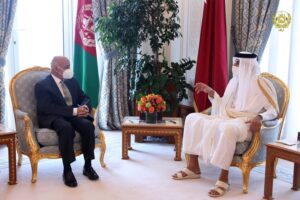
Fig. 12 – Qatar: Dōḥa, Amīr Shaykh Tamīm ath-Thānī met then-Afghan President Ashrāf Ghani, October 2020 (via Khaama Press)
From these events, it would also be clear that Qatar of the new Amīr Shaykh Tamīm ath-Thānī, who succeeded his father in 2013, had opened up spaces for international relations beyond the constraints imposed by the GCC, taking advantage of the credibility offered during the mediations of previous years. The resolution of political conflicts in Yemen and Lebanon, for example, would pave the way for renewed openings towards Iran, in particular for the management of the North Pars gas field. But the Amīr’s vision went much further, establishing close relations with Erdoğan’s Turkey precisely on the shared basis of the option to the Muslim Brotherhood and projecting himself into the Palestinian theatre with yet another mediation for reconciliation between Ḥamās and the Islamic Jihād Movement, which took place in Dōḥa in 2014.[13] In the past, in 1996, Qatar had even established diplomatic relations with Israel, which were broken down after the Gaza massacre perpetrated by the Israel Defense Forces in 2008-09 during the Israeli-Egyptian land, air, and maritime blockade of the Gaza Strip, but without the diplomatic action precluding yet another Qatari mediation for a truce between Tel Aviv and Ḥamās in Operation Protective Edge in 2014.[14]
Indeed, Qatar’s closeness to the Gaza-based Palestinian resistance movement had already been evident for some years since Dōḥa likely financed the Strip’s administrative management, at the same time hosting its political leadership. And precisely in that crucial 2014, Riyāḍ and Abu Dhabi reacted to the activism of the Amīr at-Thānī in Palestinian affairs, declaring terrorists the Muslim Brotherhood and affiliated organisations, and therefore all their financiers (Ulrichsen, 2020).
It was a decisive turning point for the balance of power in the Middle East and the Arabian Peninsula that inevitably affected the GCC unity.[15] We should underline that this strategy borrowed from the Western intelligence and chancelleries behaviour during the destructive anti-terrorism campaigns, a plan to brand with infamy many Islamist or national liberation and resistance movements operating in the Arab-Islamic world (including North Africa), alienated their sympathies towards Saudi Arabia, which nevertheless represents one of the most crucial points of reference for Sunni culture and spirituality.
The GCC embargo and the opening of new markets
The accusation against Qatar of moving away from the GCC common defence policy had already led to the recall of Saudi, UAE and Bahrain ambassadors from Dōḥa in 2014, breaking the unity of the Arab countries of the Gulf, especially in the alliance developed with an anti-Iranian stance. But, when on June 5th, 2017, those three countries, with the addition of Egypt, broke diplomatic relations with Qatar, above all for its support to the Muslim Brotherhood, matched the action with the blockade and boycott of its economic and commercial activities.[16] Twenty days later, to end the crisis, they presented a list of thirteen conditions, which, if met, “Qatar would disappear as a sovereign state,” Le Monde warned at the time.
The document called for stopping all contacts with “terrorist organisations” but also with opposition movements in the four countries mentioned. On the diplomatic front, Dōḥa was to reduce its political and trade relations with Iran and cease all military cooperation with Turkey. The Emirate would also have to pay financial “reparations” to its neighbours and submit to a monitoring mechanism for the next ten years. Turkish President Recep Tayyip Erdoğan deemed the list of thirteen demands contrary to international law. Richard Anderson Falk, an American-Jewish professor emeritus of international law at Princeton University, even spoke of “Geopolitical Crime” and “unlawful intrusion on Qatari sovereignty.”[17]
Matching timing is crucial in these circumstances. It is no coincidence that five days before the conditions were presented, King Salmān bin ʿAbd al-ʿAzīz as-Saʿūd of Saudi Arabia had designated his 31-year-old son Muḥammad bin Salmān as heir to the throne to whom the anti-Qatar bloc’s decision is also attributed, receiving the White House consent. The young Prince had already run up vast powers, controlling the state oil monopoly, directing the Yemeni war, forging ties with the newly elected President Trump and, consequently, refusing dialogue with Iran.
However, as severe as it was, the embargo against Dōḥa did not lead to the desired results, in the likeness of the management of every unrealistic sanctioning measure in the global economy era. The small Emirate, called upon in an emergency to undertake an internal effort of technological innovation and efficiency of the transport infrastructure network, also played the cards of its international credibility: financial power and diplomacy. With the former, it activated all the strength of the economic-monetary relations available on the markets, including the Western financial centres, and the U.S. in particular, to the point of overturning the White House’s contemptuous judgment on Dōḥa’s support for terrorism. With diplomacy, acknowledging the uneasiness of some GCC members over the fractured situation in the region, it welcomed the availability for dialogue of Oman and Kuwait, especially of the latter by its Amīr Shaykh Sabāh al-ʾAḥmad aṣ-Ṣabāḥ, who offered its mediating action. But even outside the area, Turkey and Iran showed solidarity and support, intensifying relations with the attacked party; from then on, China proposed itself as a long-term LNG buyer.
The result was, therefore, just the opposite of what the sanctioning players expected. Anyway, a process of reconciliation and settlement of divergences that began in 2021 between Riyāḍ and Dōḥa was followed by the restoration of diplomatic relations from all the contenders who had met the Saudis’ attitude.
Al Jazeera, Riyāḍ’s bête noire
Above all, Saudi Arabia is well aware that one of the most effective instruments of Qatar’s soft power is attention to communication. The role played during the Arab Uprising and the Palestinian crises, documenting people’s protests against the oppressive establishments, proved it amply. But the intent goes far beyond the political and, often, propaganda mission many networks in some authoritarian and democratic countries are accustomed to. When in 2006, after ten years of programs in Arabic, Al Jazeera launched its English language edition, the mission was clear: to project the Arab users it targeted into a panorama of international communication with corresponding quality standards and, vice versa, draw the attention of the rest of the world to the technological capabilities and social openness the Arab world wants to deliver. A non-conformist breakthrough to promote participation in a globalised world where unique thinking is dominant and dissent is poorly tolerated.[18]
As a result of the intuition of Amīr Ḥamad bin Khalīfa ath-Thānī, Al Jazeera Media Network was born as a state-owned statutory corporation authorised by law for public interest purposes. Despite its nature and government funding, the media group claims its editorial independence. Mainly, it denies being a conveyor of the Emirate’s politics and even less, given the Islamic nature of the State, of particular religious doctrines. Indeed, its English-speaking broadcast shows diversified stances on various topics to an audience of almost half a billion users in 150 countries around the world, undermining the Western stereotype that an authoritarian regime, such as many deem Qatar, cannot allow transparently also the diffusion of news that does not strictly reflect the line of ruling authorities.
Yet, the Wahhābi Emirate has given life to a plural communication tool that does not advocate political or cultural models to be exported from Qatar but has challenged the prototypes of Arab and Middle Eastern societies still in transformation, without fearing undermining the political-institutional order of the country itself. The reference is once again to the media coverage of the Arab Uprisings and their Islamist legacies. Indeed, one of the requests Riyāḍ made during the first crisis with Qatar within the GCC concerned the Al Jazeera shutdown, as well as the Brookings Dōḥa Center, one of the most active research centres operated by the Washington-based think tank.
The aversion to the broadcaster, especially on the part of Saudi Arabia and the UAE, radicalised in response to the activity of an eclectic and controversial figure such as Yūsuf al-Qaraḍāwī, an ʿālim of Egyptian origin who settled in Dōḥa in 1961 during Nasser’s persecutions against the Muslim Brotherhood, to which he was connected. Inspired by the movement founder, Ḥasan al-Bannā, Qaraḍāwī received his education in Quranic Studies at the Al-Azhar University in Cairo, to which he owed his transfer to the Qatari Secondary Institute of Religious Studies before founding and directing the Faculty of Sharī’a and Islamic Studies at the University of Qatar.
The turning point was the start of his weekly “Sharia and Life” program on Al Jazeera Arabic, in which Qaraḍāwī showed the effectiveness of bringing together expertise on the Islamic fundamentals with the communication needs that modern technology fulfils. This is how he expressed this awareness: “Jihad with the tongue and statement in our time takes many forms. Among them: oral statement through speeches, lessons, and lectures, which address people with their tongues to explain to them, and address them according to the extent of their minds. Among them: the written statement, written in different languages to convey the message of Islam to them, through books, letters, pamphlets, research, and articles, which address people at various levels, each in a manner appropriate to it.”[19]
His broadcasts, followed on average by 40-60 million worldwide, so annoyed the Saudi and Emirati rulers that they dictated Qatar to expel him from the country. He was not forgiven for his alleged affiliation to the Muslim Brotherhood (which was denied at the time by Qaraḍāwī himself) and his defence of the Arab Revolts; as well, his crucial role in the foundation of the Qatar-based International Union of Muslim Scholars considered a Brotherhood’s offspring, and whose he also assumed the Presidency. The IUMS was born to welcome Sunni, Shiite, and Ibadi Muslims and, therefore, not appreciated by all fundamentalists of Muslim sectarianism.
The groundwork of Emirate geopolitics
Qatar is an image and allegory of many uncommon qualities in the current world; first, the ability to defend sovereignty and independence with a non-preclusive attitude to external collaborations and openness to requests for participation from Umma and beyond. Yet, its regional belonging and military solidarity bonds are so onerous as binding, in Dōḥa’s interpretation, not to the point of shaping its political self-determination in both internal and foreign affairs in a psychological or de facto dependence.
Qatar is a borderland and a bridge between multifaceted cultures within Islam itself, playing a role similar to the one Turkey does on a much broader scale between the West and the East. Turkey, far from other NATO members, does not bow to Washington’s dictates uncritically, as remaining an alliance key component. Ankara and Dōḥa, both of the Sunni faith, know how to distinguish religious reasons from geopolitical ones and how to use the weapons of diplomacy to reconcile one and the other without confusing them. The hint is in particular to the relations with the Āyatollāhs’ Iran and the role Ankara and Dōḥa have played and are playing, especially as opposed to Syrian President Asad, without compromising solidarity towards the Islamist liberation movements fighting for emancipation from foreign oppression. In this sense, the political action of the small Emirate was crucial to intensify coordination between the various actors from different political-religious backgrounds operating in the Lebanese and Palestinian theatres to put back at the centre the Middle Eastern question, which had been expelled from Chancelleries’ agendas.
The 2020 Abraham Accords, resulting from a period of disinterest in the Palestinian issue and without the interlocution of Palestinian representatives, underlined the lack of clarity and foresight of the rulers in Washington. Thinking that negotiations of a substantially commercial nature could lead to pacification based on an effective slogan in terms of communication, but without addressing the political issues that have been open since 1948, if not even 1917 (Balfour Declaration), means crystallising the situation on the ground. Far from the “Two peoples, Two States” solution!
I will not open up the topic of the Palestinian issue in all its facets, as it would mislead the intentions of this writing. However, it is notable to underline that in the Middle East, there is an “Israeli question” the international community has never seriously addressed. That is, how Tel Aviv intends to coexist with neighbouring states and the peoples of the Islamic community without continually flexing its muscles, breaking every concept of international law, and without using history as an alibi for every horrible misdeed. The memory of a historical holocaust the Jews suffered by European dictatorships does not legitimise an indiscriminate genocide against Muslims like the one in Gaza. Israel is a nuclear power without any check by the IAEA, to which it does not adhere, without any control by international war crimes courts, to which it is not accountable, taking illegally territories over which it has imposed its dominion for decades without respecting the Geneva Conventions, in the throes of a legislative drift endorsing forced and armed colonisation to the detriment of populations who are not recognised as having the right to self-defence.
Dōḥa has always been inflexible on these topics and has always been close to the Palestinian people both on the issues of Gaza and the status of Jerusalem. However, it has always maintained an open channel with Tel Aviv, favouring dialogue over clear opposition in principle. Still, the peace processes towards setting a stable political framework in the region are linked to Qatar’s ability to encourage communication between the contenders. However, a radicalisation of the Jewish State is evident in the failure to comply with every shared legal norm and in clear violation of the rule of law. Other people cannot pay the price of the steady political-institutional crisis that grips a state entity on the drift of real ethnic-racial discrimination. The recent “ad personam” elimination of Major General Sayyed Razi Mousavi, a high-ranking figure in the Quds Force of Iran’s Islamic Revolutionary Guard Corps, due to an Israeli attack from the occupied Syrian Golan Heights has the flavour of an unjustified strafexpedition similar to the one that four years ago struck General Qāsim Sulaimānī, Commander of that same unit and hero of the fight against ISIS. Generally, senseless actions of this type intend to raise tension in war theatres where difficulties are encountered.
Neither yesterday’s U.S. nor today’s Israel is ostensibly engaged in a civil war involving the Syrians. But Tel Aviv believes it can bomb Damascus, Aleppo, Beirut and even Tehrān whenever and however it wants, as it has been doing for years, under its right to self-defence. Joe Biden, in the aftermath of the assassination of General Sulaimānī by the confessed President Trump, said: “President Trump just tossed a stick of dynamite into a tinderbox, and he owes the American people an explanation.” Biden, now in the White House and head of that Western coalition eccentrically also including Israel, does not have the authority to impose moderation and honourable behaviour on his ally, especially in undeclared wars. He, above all, does not have the prestige and recognition, given the teachings his country has given to the entire world in the last two decades.
Therefore, independence protection, sectarianism overcoming, diplomatic mediation and defence of Palestinian claims are Dōḥa’s geopolitical fulcrum. However, we cannot omit in this context the praiseworthy activity of the small Emirate in favour of wealth transfer instruments for poor and marginalised people and equity and solidarity goals. Some analysts deem this dynamism as the result of a preset geopolitical plan to convey the beneficiary’s consent towards the donor. Gratitude could be a consequence of humanitarian aid, but attaching the purpose of a preset political gamble to social support activities for populations in difficulty would call into question the entire structure of associations working in emergencies and for development.
These are notations conveyed by a debate that emerged in the past, especially to Western NGOs and according to a secular vision that sees solidarity and development at the service of economics and geopolitics. Conversely, the ethical vision of Islam indicates some principles: “The international community has a duty to fulfil its commitment to eradicate poverty,” according to the vision that the economy is the servant of values; social solidarity is one of the hallmarks whereby a mere plurality of individuals becomes a community; social justice is expressed not only by satisfying the essential material needs but also the ethical, civic and cultural.
The NGO Qatar Charity’s activity in the Middle East and North Africa has made it one of the world’s largest humanitarian and development organisations. It performed countless emergency actions in medical, food, sanitation, financial assistance, and development aid to meet health, education, housing and social interaction requirements. It invested billions of dollars to help displaced people by war across the Middle East, Sahel, and Horn of Africa. It has many in-progress partnerships with international U.N. bodies (OCHA, UNHCHR, WFP, UNICEF, WHO), including the UNRWA, dedicated to Palestinian refugees. Despite the constantly growing industriousness during the thirty years since its establishment, some radicalised Arab countries designate Qatar Charity as a terrorist organisation for its alleged Muslim Brotherhood’s closeness. This assessment does not involve the international community, which keeps acting with the Charity in a spirit of humanitarian cooperation.
As we can see from an external perspective, the cutoff from ideological prejudices is the key to the small Emirate’s originality, which marks its geopolitics ground. This allows Qatar to dialogue with the world without any taboos while maintaining deep political-religious integrity. It is an example of fairness also for the Arab and Islamic world, which it proudly belongs to.
REFERENCES
Al Jazeera. “Qatar to supply gas to Bahrain,” May 9th, 2005. https://www.aljazeera.com/news/2005/5/9/qatar-to-supply-gas-to-bahrain.
al-Qaraḍāwī, Yūsuf. “Jihad of the tongue and statement… Jihad of advocacy and media,” Dr. Yusuf Al-Qaradawi’s website. https://www.al-qaradawi.net/node/2260.
D’Agostino, Glauco. “The Islamists of Palestine on the Emir’s Route,” Islamic World Analyzes, March 31st, 2014.
D’Agostino, Glauco. Sulle Vie dell’Islam. Percorsi storici orientati tra dottrina, movimentismo politico-religioso e architetture sacre (Historical and Architectural Itineraries across the Muslim Countries) (Rome, Italy: Gangemi, 2010).
Falk, Richard. “Geopolitical Crimes: A Preliminary Jurisprudential Proposal,” State Crime Journal 8, no. 1 (2019): 5-18. Doi: 10.13169/statecrime.8.issue-1.
Foreman, Colin. “The region’s most ambitious causeway projects,” Middle East Business Intelligence, February 8th, 2023. https://www.meed.com/the-regions-most-ambitious-causeway-projects.
Hamzawy, Amr. “The Political Impact of the Israel-Hamas Ceasefire,” Carnegie Endowment for International Peace, December 6th, 2023. https://carnegieendowment.org/2023/12/06/political-impact-of-israel-hamas-ceasefire-pub-91177.
Hydrocarbons Technology. “Dolphin Gas Project, Ras Laffan,” n.d.
International Monetary Fund. “World Economic Outlook Database,” October 2023. https://www.imf.org/external/datamapper/NGDPDPC@WEO/OEMDC/ADVEC/WEOWORLD?year=2023.
International Monetary Fund. “World Economic Outlook Database,” October 2023. https://www.imf.org/external/datamapper/PPPPC@WEO/OEMDC/ADVEC/WEOWORLD.
Kawakibi, Salam. “Qatar’s Role in the Geopolitical Scenarios of the Middle East and North Africa,” IEMed Mediterranean Yearbook 2022.
Qatar’s Role in the Geopolitical Scenarios of the Middle East and North Africa
Republic Bank. “Geopolitics,” Economic Intelligence Unit Monitor, Volume 2(2) (May 2023). https://republictt.com/pdfs/eiu-monitor/EIU-Monitor-May-2023.pdf.
Roberts, David B. “Qatar Coming to Grips with New Realities of Global Energy Markets,” The Arab Gulf States Institute in Washington (AGSIW), (8/2015), Washington, DC. https://agsiw.org/wp-content/uploads/2015/11/Roberts_Qatar-LNG_2.pdf.
Selmi, Refk and Bouoiyour, Jamal. “Arab geopolitics in turmoil: Implications of Qatar-Gulf crisis for business.” International Economics, 161 (2020): 100-119. ff10. Doi: 1016/j.inteco.2019.11.007.
The Emissary. “The Shadow Sultanate: Qatar,” May 29th, 2020.
Ulrichsen, Kristian Coates. “Using Religion for Geopolitical Ends in the Gulf Disputes between Abu Dhabi and Qatar,” Berkley Center for Religion, Peace & World Affairs, Georgetown University, August 31st, 2020. https://berkleycenter.georgetown.edu/posts/using-religion-for-geopolitical-ends-in-the-gulf-disputes-between-abu-dhabi-and-qatar.
United Nations Development Programme. “Human Development Report 2021-22,” September 8th, 2022. https://hdr.undp.org/data-center/specific-country-data#/countries/QAT.
World Population Review. “Natural Gas by Country 2023.” https://worldpopulationreview.com/country-rankings/natural-gas-by-country.
Worldview. “Qatar Asserts Its Independence,” Stratfor, July 7th, 2017. https://worldview.stratfor.com/article/tiny-qatar-goes-its-own-way.
***
[1] World Population Review, “Natural Gas by Country 2023,” https://worldpopulationreview.com/country-rankings/natural-gas-by-country.
[2] International Monetary Fund, “World Economic Outlook Database,” October 2023, https://www.imf.org/external/datamapper/NGDPDPC@WEO/OEMDC/ADVEC/WEOWORLD?year=2023.
[3] United Nations Development Programme, “Human Development Report 2021-22,” September 8th, 2022, https://hdr.undp.org/data-center/specific-country-data#/countries/QAT.
[4] International Monetary Fund, “World Economic Outlook Database,” October 2023, https://www.imf.org/external/datamapper/PPPPC@WEO/OEMDC/ADVEC/WEOWORLD.
[5] David B. Roberts, “Qatar Coming to Grips with New Realities of Global Energy Markets,” The Arab Gulf States Institute in Washington (AGSIW), (8/2015), Washington, DC, https://agsiw.org/wp-content/uploads/2015/11/Roberts_Qatar-LNG_2.pdf.
[6] Worldview, “Qatar Asserts Its Independence,” Stratfor, July 7th, 2017, https://worldview.stratfor.com/article/tiny-qatar-goes-its-own-way.
[7] Hydrocarbons Technology, “Dolphin Gas Project, Ras Laffan,” n.d., https://www.hydrocarbons-technology.com/projects/dolphin-gas/
[8] Al Jazeera, “Qatar to supply gas to Bahrain,” May 9th, 2005, https://www.aljazeera.com/news/2005/5/9/qatar-to-supply-gas-to-bahrain.
[9] Colin Foreman, “The region’s most ambitious causeway projects,” Middle East Business Intelligence, February 8th, 2023, https://www.meed.com/the-regions-most-ambitious-causeway-projects.
[10] Kristian Coates Ulrichsen, “Using Religion for Geopolitical Ends in the Gulf Disputes between Abu Dhabi and Qatar,” Berkley Center for Religion, Peace & World Affairs, Georgetown University, August 31st, 2020, https://berkleycenter.georgetown.edu/posts/using-religion-for-geopolitical-ends-in-the-gulf-disputes-between-abu-dhabi-and-qatar.
[11] The Emissary, “The Shadow Sultanate: Qatar,” May 29th, 2020, https://theemissary.co/the-shadow-sultanate-qatar/
[12] Glauco D’Agostino, Sulle Vie dell’Islam. Percorsi storici orientati tra dottrina, movimentismo politico-religioso e architetture sacre (Historical and Architectural Itineraries across the Muslim Countries) (Rome, Italy: Gangemi, 2010), 199-200.
[13] Glauco D’Agostino, “The Islamists of Palestine on the Emir’s Route,” Islamic World Analyzes, March 31st, 2014, https://www.islamicworld.it/wp/the-islamists-of-palestine-on-the-emirs-route/
[14] Amr Hamzawy, “The Political Impact of the Israel-Hamas Ceasefire,” Carnegie Endowment for International Peace, December 6th, 2023, https://carnegieendowment.org/2023/12/06/political-impact-of-israel-hamas-ceasefire-pub-91177.
[15] Refk Selmi and Jamal Bouoiyour, “Arab geopolitics in turmoil: Implications of Qatar-Gulf crisis for business.” International Economics, 161 (2020): 100-119. ff10. Doi: 1016/j.inteco.2019.11.007.
[16] Republic Bank, “Geopolitics,” Economic Intelligence Unit Monitor, Volume 2(2) (May 2023), https://republictt.com/pdfs/eiu-monitor/EIU-Monitor-May-2023.pdf.
[17] Richard Falk, “Geopolitical Crimes: A Preliminary Jurisprudential Proposal,” State Crime Journal 8, no. 1 (2019): 5-18, Doi: 10.13169/statecrime.8.issue-1.
[18] Salam Kawakibi, “Qatar’s Role in the Geopolitical Scenarios of the Middle East and North Africa,” IEMed Mediterranean Yearbook 2022, https://www.iemed.org/publication/qatars-role-in-the-geopolitical-scenarios-of-the-middle-east-and-north-africa/
[19] Yūsuf al-Qaraḍāwī, “Jihad of the tongue and statement… Jihad of advocacy and media,” Dr. Yusuf Al-Qaradawi’s website, https://www.al-qaradawi.net/node/2260.

